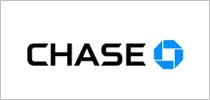Editorial Note: We earn a commission from partner links on Doughroller. Commissions do not affect our authors’ or editors’ opinions or evaluations. Learn more here.
Capital One, Discover, and Chase all offer a variety of financial services, including online banking.
Online bank accounts are a great place to store your money. They’re just as safe as physical banks and make it convenient to access your money from anywhere. They also tend to pay higher interest rates than brick-and-mortar banks and charge fewer fees.
If you’re looking for a good online bank, especially for savings, Capital One, Discover and Chase are all strong choices, though each has pros and cons.
Capital One Bank vs. Discover vs. Chase: Overview
| Capital One Bank | A basic online banking experience | Specialized accounts for kids and teens |
| Discover | Online checking and personal lending | Earn rewards on debit card purchases |
| Chase | People who want all their financial services from one company | Wide network of physical branches |
In a Nutshell
- Capital One Bank is great for people who want a basic, fee-free online banking experience.
- Discover® Bank is great for people who want a checking account that rewards them for purchases.
- Chase is great for people who want to do all of their banking, borrowing, and investing in the same place.
About Capital One Bank
 Capital One might be better known for its credit card offerings, but it has spent the past few years expanding its banking services. The company started opening physical locations, called Capital One Cafés which combine the services you’d expect at a bank with the atmosphere and drink menu of a café.
Capital One might be better known for its credit card offerings, but it has spent the past few years expanding its banking services. The company started opening physical locations, called Capital One Cafés which combine the services you’d expect at a bank with the atmosphere and drink menu of a café.
Basic Features
Capital One Bank is a primarily online bank with a few physical locations in major cities. The bank offers checking accounts, savings accounts, and certificates of deposit (CDs).
None of Capital One’s accounts have a minimum balance and they do not charge monthly fees. This makes it easy for anyone to open an account. The savings accounts pay competitive interest rates and checking account customers can get fee-free access to their money at more than 40,000 Capital One and Allpoint ATMs across the country.
Beyond its wide variety of credit cards, Capital One also offers auto loans and small business loans.
Special Features
Capital One offers a few accounts that are designed to help younger people learn about money. You can open a kid’s savings account and use the account to show your children the power of saving money and earning interest. The MONEY account is a teen checking account that you can use to monitor your teen’s spending and teach them about managing their money responsibly.
Fees
One of the benefits of Capital One Bank is that none of its accounts charge a monthly fee or have a minimum balance requirement. You won’t have to worry about having fees eat away at your account balance.
Capital One has its own ATMs and is part of the Allpoint ATM network, giving customers more than 40,000 ATMs that they can use, fee-free. However, Capital One doesn’t refund ATM fees charged by other banks.
Pros and Cons of Capital One
Before opening an account with Capital One Bank, consider these pros and cons.
- Competitive interest rates
- Specialized accounts for kids and teens
- Checking and savings accounts available
- Some physical locations
- No ATM fee reimbursement
- Few loan options available
Why Use Capital One Bank?
Capital One Bank is a good choice if you’re looking for a fee-free, basic online bank. It doesn’t have the killer features and variety of services that some other online banks have, but it does offer inexpensive, functional accounts.
It’s also a good choice if you have children and want to be able to give them their own bank accounts, while still having tools that you can use to teach them about managing money.
About Discover
 Discover is another lender and credit-card issuer that has expanded into offering online banking services.
Discover is another lender and credit-card issuer that has expanded into offering online banking services.
Basic Features
Discover offers checking and savings accounts as well as CDs and money market accounts. Like many online banks, these accounts don’t charge monthly fees; only the CD has a minimum deposit, which is $2,500.
The savings account has a competitive interest rate and the checking account comes with a network of more than 60,000 fee-free ATMs, making it easy to get cash when you need it.
You can also work with Discover if you need to borrow money. Discover offers credit cards, student loans, personal loans, home equity loans, and mortgage refinancing.
Special Features
One unique feature of Discover is it offers rewards for debit card purchases. Typically, one of the top reasons to use a credit card is credit cards offer cashback or other rewards while debit cards don’t.
Discover changes that by paying 1% cash back on up to $3,000 in debit card purchases each month. This means you can earn $30 each month by shopping normally with your debit card.
Fees
Discover emphasizes the lack thereof a fee structure, for its accounts. The bank doesn’t charge monthly maintenance fees for any of its accounts and offers many other services, fee-free, including:
- Replacement debit cards
- New checkbooks
- Official bank checks
- Stop payments
- Deposited item returned
- Insufficient funds transactions
Pros and Cons of Discover
Before opening an account with Discover, consider these pros and cons.
- Low or no fees
- Competitive interest rates
- Rewards for debit card purchases
- No physical locations
- $2,500 minimum deposit for CDs
Why Use Discover?
Discover is a good choice if you want a checking account that rewards you or an online bank having more lending options than Capital One. The ability to earn 1% cash back on debit purchases is good for those who may not be able to qualify for a credit card, as you can earn more than $300 each year in rewards.
Visit Discover Bank
About Chase
 Chase is one of the largest financial companies in the world. With more than $3.2 trillion under management, it ranks as the largest bank in the United States and the fifth-largest in the world. It offers almost every financial service you could need, including banking, lending, and investing services.
Chase is one of the largest financial companies in the world. With more than $3.2 trillion under management, it ranks as the largest bank in the United States and the fifth-largest in the world. It offers almost every financial service you could need, including banking, lending, and investing services.
Basic Features
Chase has a large network of physical banks, but also lets you open accounts online, making it a good choice for people who want the convenience of an online bank but who also want the option to get help in person when they need it.
Chase’s banking services are solid, with multiple varieties of checking and savings accounts that are designed for customers with different levels of assets. The more you have at the bank, the more services you can get, including ATM fee reimbursements, free money orders, and overdraft services.
A drawback of its savings accounts is the interest rates are not very competitive. If you want to earn a better return on your balance, you’ll need an account at a different bank.
If you need more than checking and savings accounts, Chase also offers loans, including mortgages, auto loans, and credit cards. You can also work with Chase to manage your investments, whether you want to manage your portfolio on your own or with the assistance of an advisor.
Special Features
Chase doesn’t offer many special features like Discovers debit card rewards. What makes Chase stand apart is the sheer quantity of services it provides. If you want, it could be the only company that you work with for all your financial needs.
If you have a lot of money to keep in your Chase bank and investment accounts, you can unlock special features, such as exclusive support lines, discounted loan rates, and early ticket sales for events, but you’ll need to have close to $100,000 with Chase before you can open the accounts that offer those perks and avoid the monthly fees.
Fees
Most of Chase’s bank accounts charge a monthly fee of some kind, even the basic ones. The higher the level of service, the larger the fee.
Typically, you can avoid the fee by meeting some requirements, with the requirements becoming more stringent as the level of service increases.
For example, the Chase Total Checking account has a $12 monthly fee that Chase will waive if you meet any of the following requirements:
- Receive $500 in electronic deposits
- Maintain a minimum balance of $1,500
- Maintain an average balance of $5,000 across all your Chase accounts
The Sapphire Checking account charges a $25 monthly fee that you can avoid with a combined balance of $75,000 across your Chase accounts.
Pros and Cons Chase
Before opening an account with Chase, consider these pros and cons.
- Banking, lending, and investing services all in one place
- Large network of physical branches
- Premium service for people with large balances
- Even basic accounts have (avoidable) monthly fees
- Poor interest rates
Why Use Chase?
Chase is the bank to use if you’re looking for a single company to handle all of your financial needs. If you work with Capital One or Discover, you’ll need to find other companies to use for investing or certain types of loans. With Chase, you can keep all of your money in one place.
FAQs
Here are some frequently asked questions about online banks.
[faqs-content id=”IITGQUNHPNFEJEX3X2KQT3DQYE” /]
Related:
Capital One Bank vs. Discover vs. Chase Online Banks: Bottom Line
Online banking has grown in popularity in recent years and it’s now possible to handle all of your banking needs without visiting a physical bank. Capital One Bank, Discover, and Chase all offer online banking services, so if you’re looking to open an account, take the time to consider these options.
Learn More:


